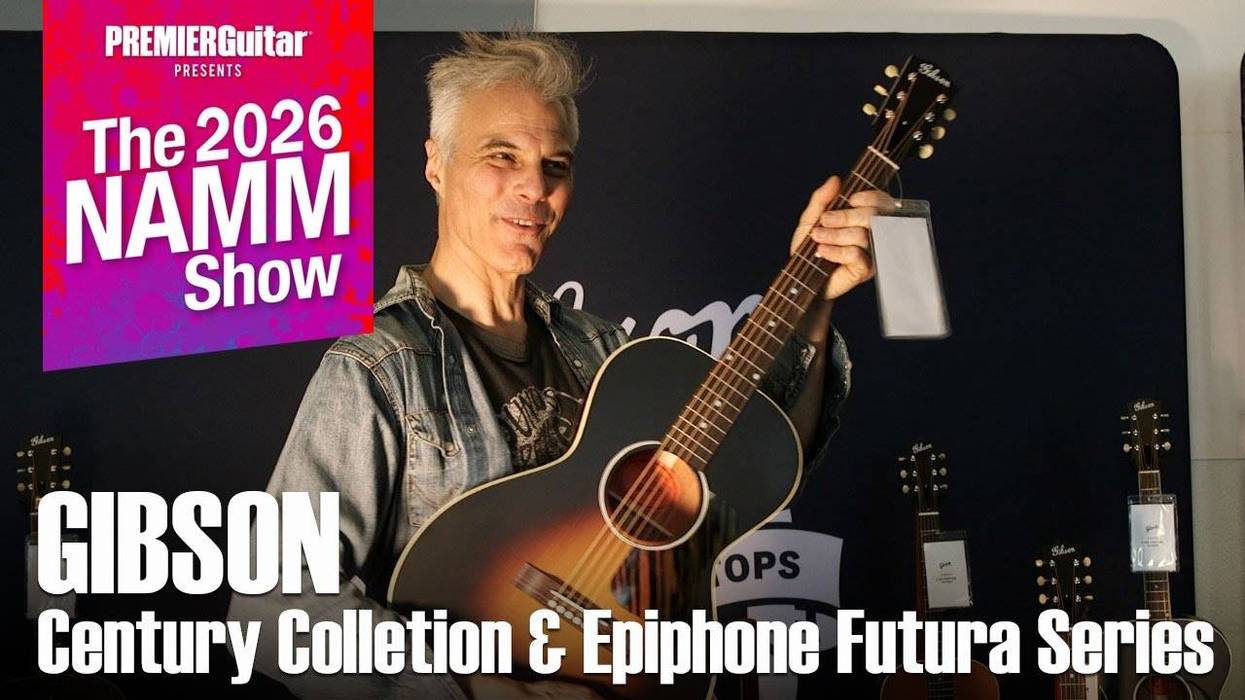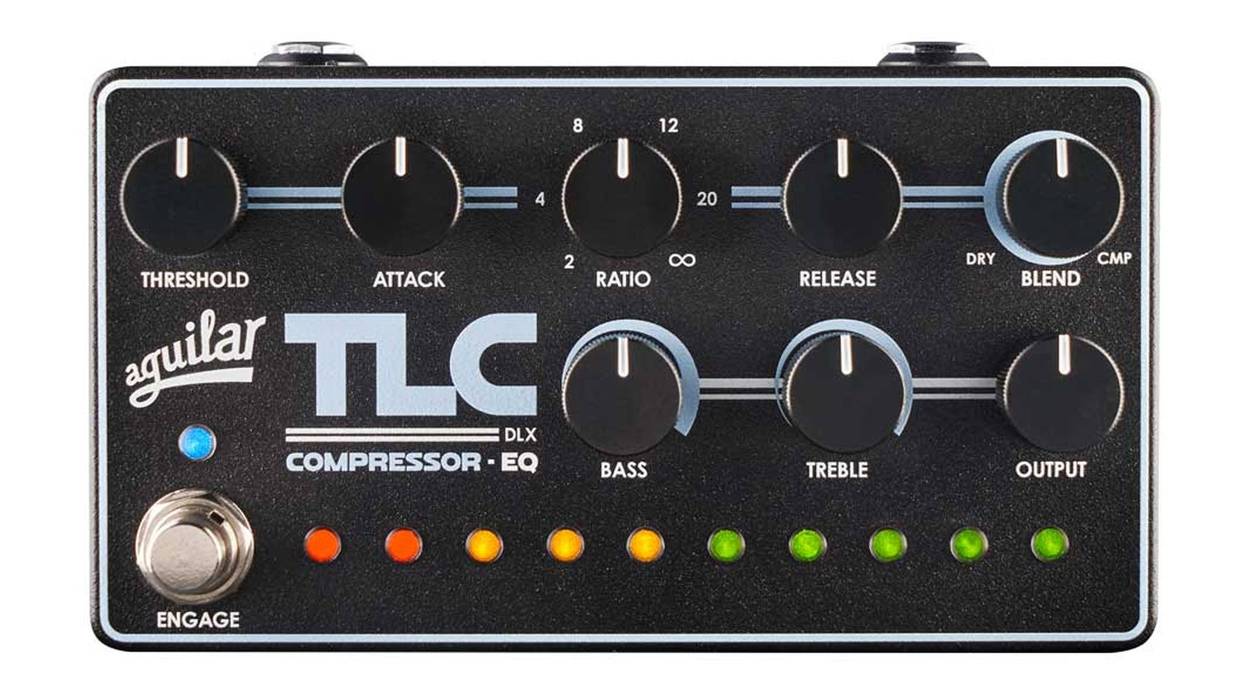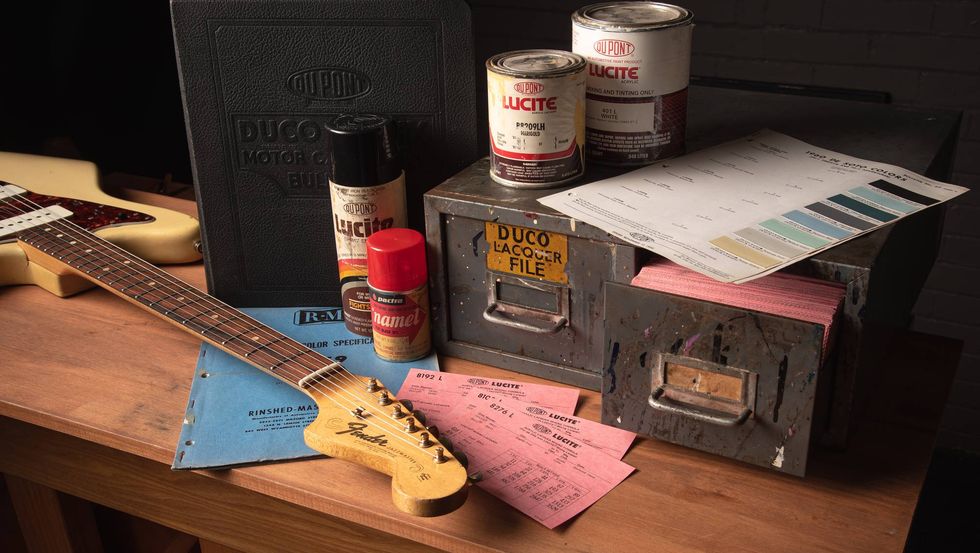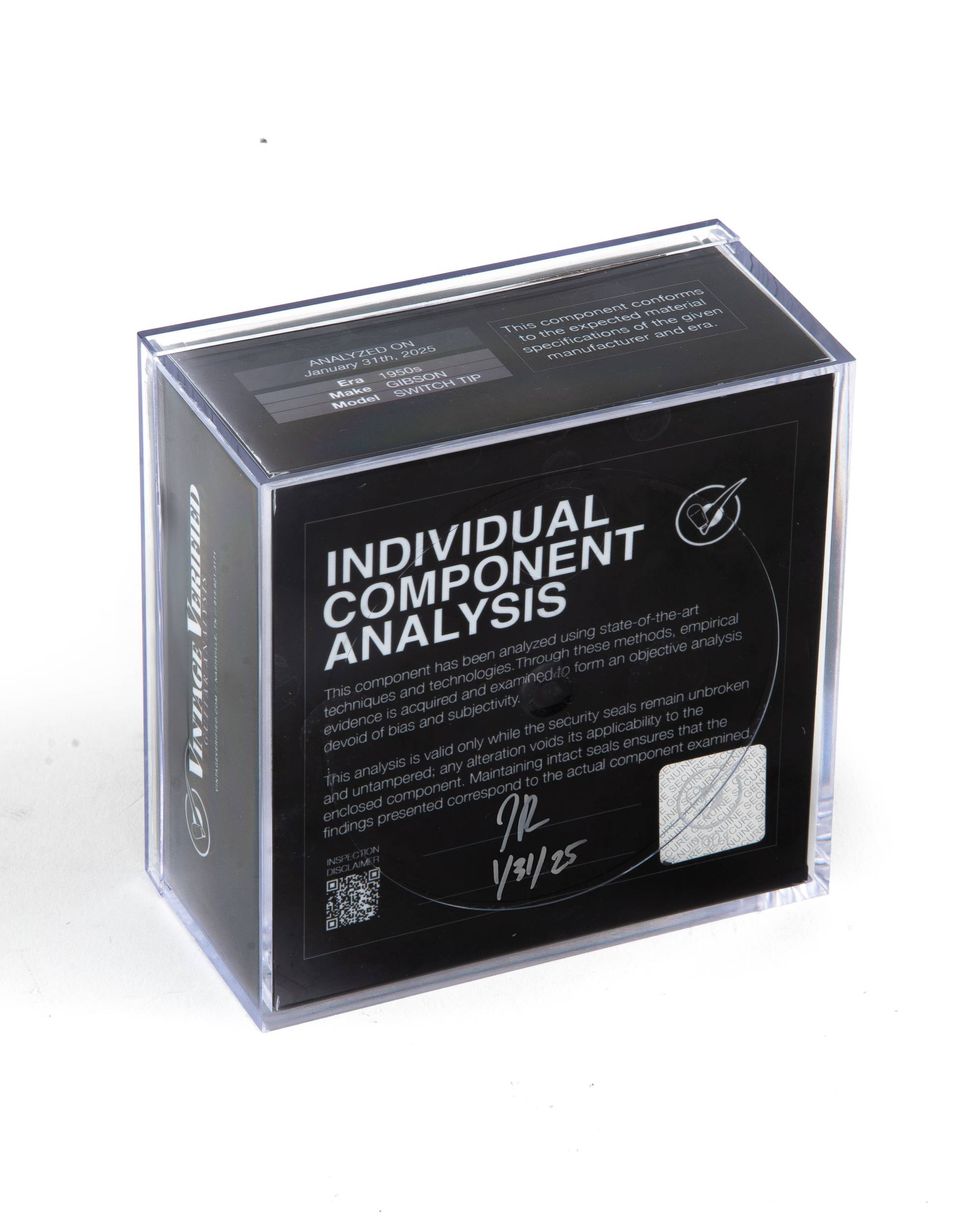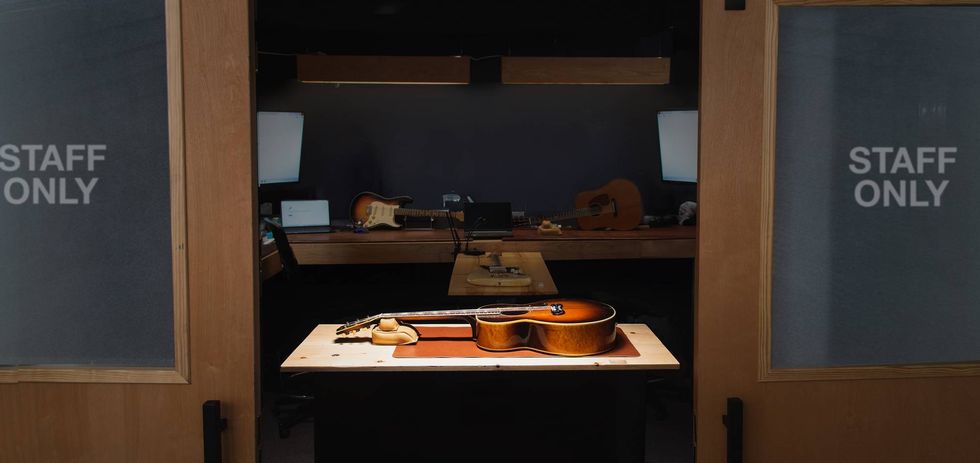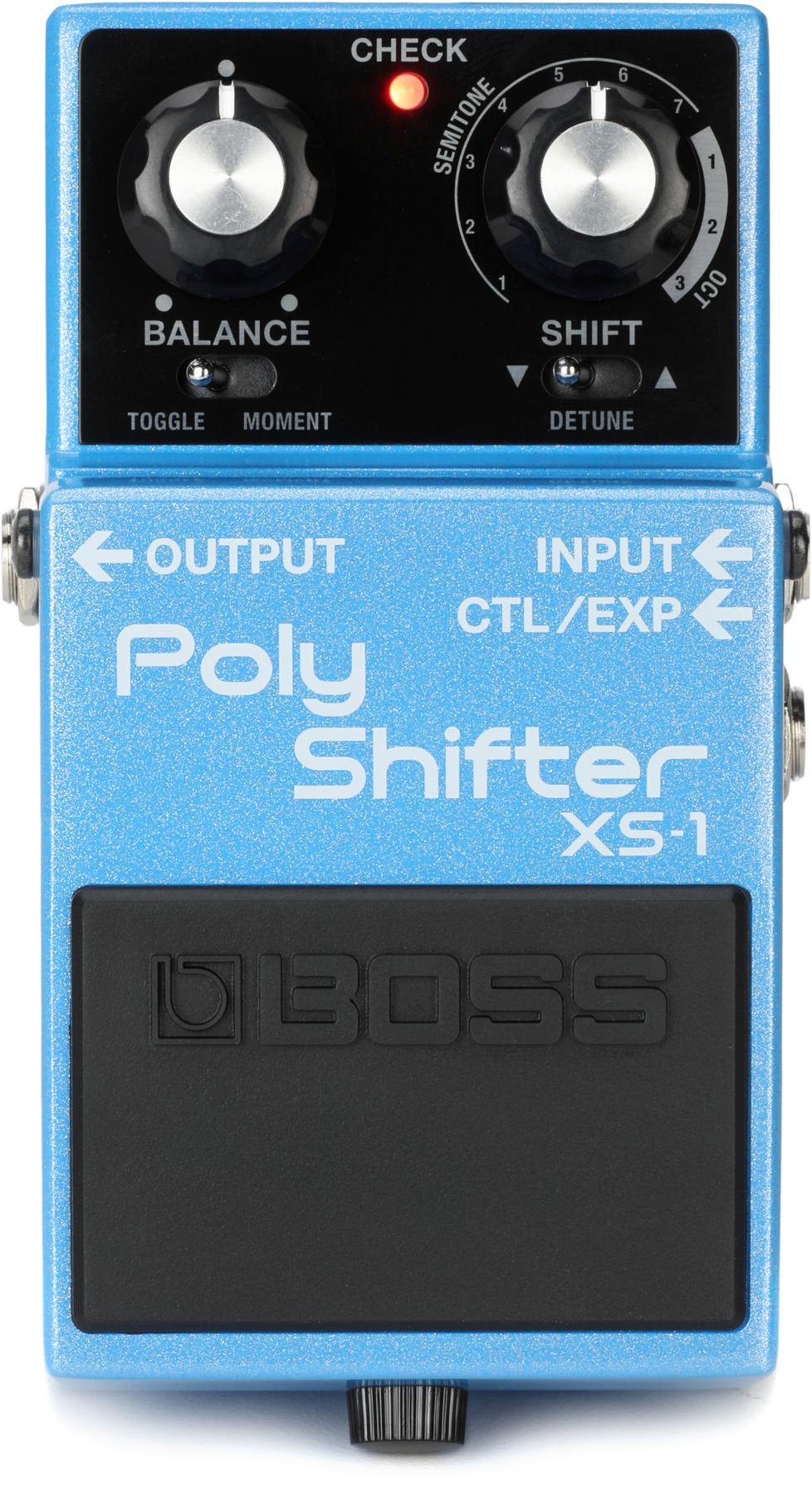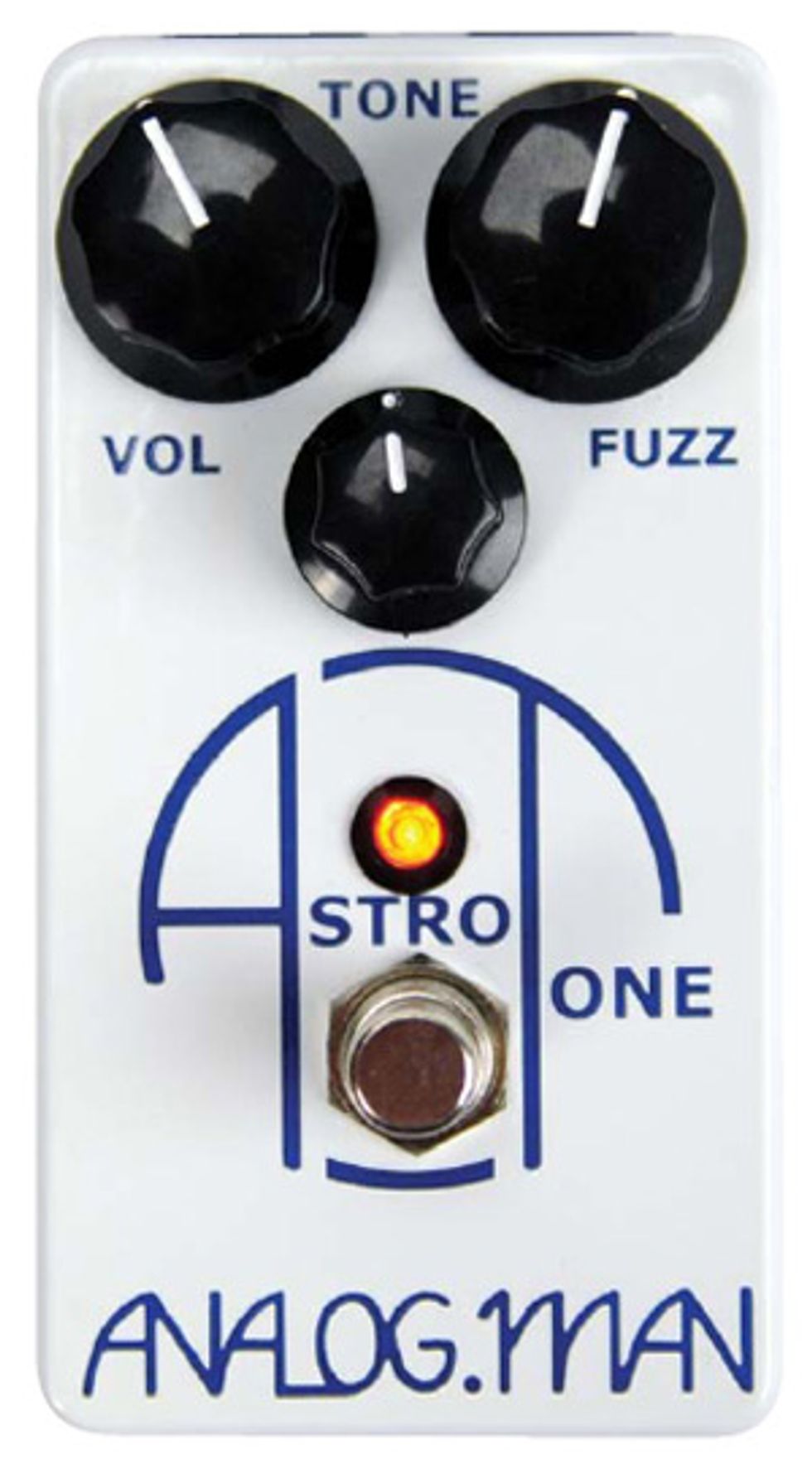 | |
| Download Example 1 Volume 2, Tone 1, Fuzz 3. Epiphone Slash Les Paul, bridge humbucker. | |
| Download Example 2 Volume 2, Tone 11, Fuzz 5. PRS Starla X, bridge soapbar pickup | |
| Download Example 3 Volume 3, Tone 9, Fuzz 5. Fender Strat, middle pickup. | |
| Clips recorded through a Fryette Memphis with Shure SM57 into Pro Tools. | |
Built for Exploration
Like all of Analog Man’s pedals, the Astro Tone is built rock solid. The case sports cool graphics that evoke a ’60s aerospace company logo. The Astro Tone also features true bypass switching and is built around a simple set of controls: Volume, Tone, and Fuzz. And pedal geeks take note: the first few hundred of these gems will be built around original 1966 Fairchild Semiconductor silicon transistors that were an essential part of the original Astrotone’s sonic signature.
Space Bound
I began evaluating the Astro Tone using a Les Paul and a Fryette Memphis amp. Despite its mid-’60s lineage, the Astro Tone’s basic character resides somewhere between a fuzz and distortion. It’s not strictly limited to the bee-buzzing sounds of a Maestro Fuzz Tone or the MKI Sola Sound Tone Bender typically associated with ’66 fuzz. Nor is it as buzzy, compressed, or over the top as a Fuzz Face. Instead the Astro Tone’s fuzz has a full, crunchy growl.
Using neck and bridge humbuckers made it easy to dial up a smoother ’70s rock tone. Single-coils sounded great too, driving the Astro Tone into warm, bluesy territory without diminishing the pedal’s capacity for sustain. A Paul Reed Smith Starla X with soapbar pickups worked beautifully with the Astro Tone too, exhibiting a knack for bold overdrive with ample low end and plenty of rock crunch. And unlike many fuzzes, each guitar cleaned up nicely by just rolling off the guitar’s volume.
The Tone knob is most effective past the half way point up to the maximum setting. And delightfully, I didn’t encounter much noise save for when cranked the Fuzz knob all the way. I preferred the tone of the Fuzz backed off a little anyway, at about 95% as opposed to full on.
The Verdict
Fuzz tone—especially the mid-’60s variety—isn’t very useful to many contemporary players. But the beauty of the Astro Tone is that it covers that buzzy territory while also being able to deliver thicker, saturated sounds. It’s great for giving both flavors of kick to smaller or cleaner amps. With a cranked large amp, the Astro Tone acts more like a booster. So if you liked the sound of the original Sam Ash Fuzzz Boxx or the Astrotone Fuzz, but also need burlier tones that shine in a band context, you’ll appreciate Analog Man’s 21st-century version. It could become your secret weapon.
Buy if...
you desire a beefy fuzz tone and buzzy vintage vibe.
Skip if...
you need modern, high-gain distortion.
Rating...
Street $185 - Analog Man - analogman.com |
| Tone Games 2010: 30 Stompboxes Reviewed | Next in DIRTIER: Creepy Fingers Effects Doomidrive |











